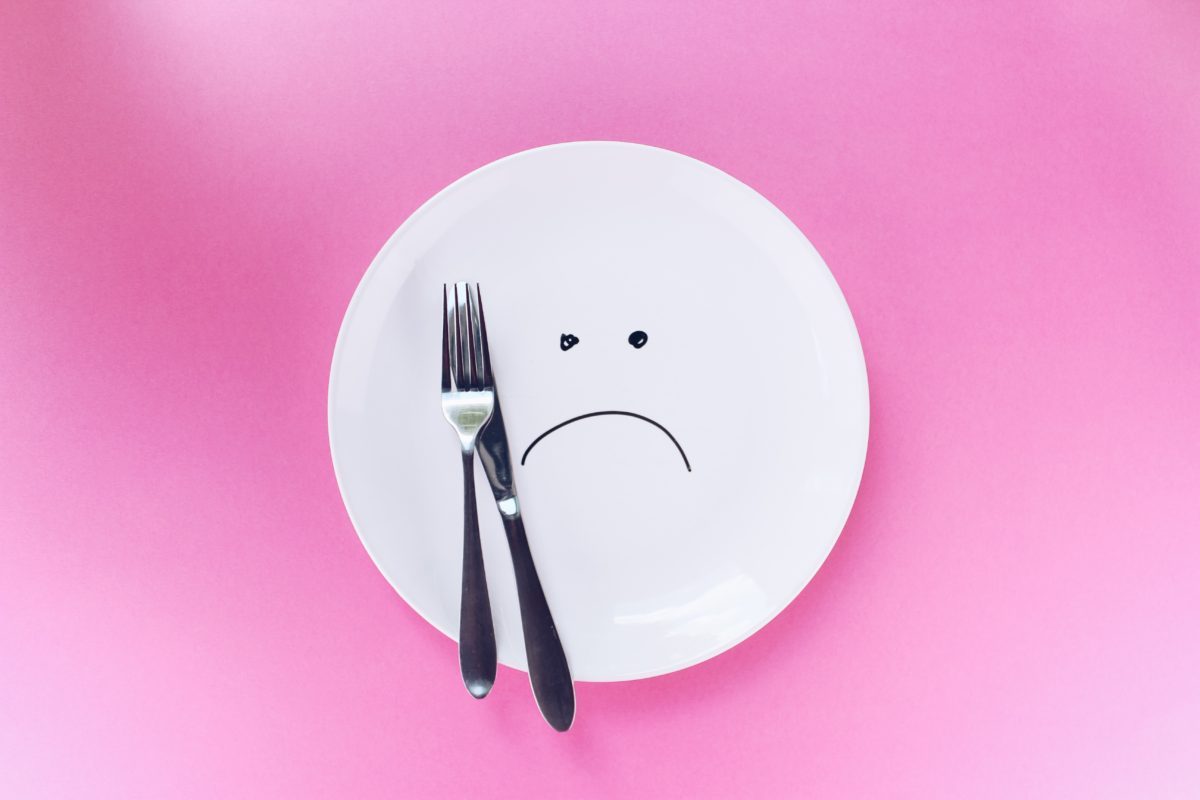10 Reasons Why You Constantly Feel Hungry

Photo by Thought Catalog on Unsplash
Whether it’s because you’re working hard throughout your lunch break or training hard at the gym, feeling hungry isn’t something you worry too much about. But what happens when you are constantly hungry no matter how much you eat? There might be something more going on with your body than you think.
According to nutritionist and owner of Everyday Health Eating, Maggie Moon, RD, “Hunger is the physiological need for calories, water and salt, and it is driven by a mix of factors, including your diet, appetite, hormones, and emotional factors, such as stress.” But why you are constantly hungry may be a major health issue. Here are 10 reasons why you always feel the need to eat:
Dehydration
According to Alissa Rumsey, RD, spokesperson for the American Academy of Nutrition and Dietetics, “Mild dehydration is often masked as feelings of hunger, when really your body just needs fluids. Prevent it by staying on top of your fluid intake, starting with a glass of water first – think in the morning. If you feel hungry and haven’t drank much water that day, try drinking a glass and waiting 15 to 20 minutes to see if your hunger subsides.”
Sleep
Little to no sleep at night may be one reason why you are always hungry. Rumsey explains, “Too little sleep can lead to surging levels of ghrelin, a hormone that stimulates appetite, as well as decreased levels of leptin, a hormone that causes feelings of fullness.” If you aim for about 8 hours of sleep per night, you have a better chance of getting both your hunger and energy levels on track.
Starches
Moon explains, “Simple carbs, the kind found in sugary, white flour foods like pastries, crackers and cookies, spike your blood sugar levels quickly, then leave them plunging soon after. That blood sugar plunge causes intense hunger for more sugary carbs, and the cycle continues.” It is suggested you incorporate almonds, apples, chia seeds and pistachios into your diet to stop those hunger pangs.
Stress
When we’re stressed, we tend to eat unhealthy things – think of that pint of ice cream you just ate while “relaxing” and watching Netflix. Rumsey explains, when you’re tense, your system ramps up production of the stress hormones adrenaline and cortisol which tricks your system into thinking it’s under attack and needs energy and causes your appetite to rage. Start doing alternative things to de-stress besides indulging in chips and ice cream like listening to music or taking a walk. Of course, what works and what doesn’t will differ from person to person, so you should always do what is effective for you, despite what anyone else thinks.
Alcohol
A recent study has found that people were more likely to consume foods higher in calories after drinking alcohol. And, because alcohol can make you dehydrated, it can trick your body into thinking it is hungry when all it might need is a glass of water. Rumsey suggests eating your meal before drinking anything and to alternate your cocktails with water so you can stay hydrated.
Protein
According to Rumsey, “Not only does protein stay in your stomach and promote feelings of fullness, it’s been shown to have an appetite-suppressing effect.” Try eating foods like yogurt, eggs, red meat and whole grains for a diet high in protein.
Eat More Fat
Adding healthy fats to your meals can help you feel fuller, just like protein. Rumsey states, “When you’re satisfied after a meal, you are more likely to listen to your hunger cues and not eat again until you are truly hungry.” Adding oils, nuts, seeds and avocados to your diet are all healthy fats that are high in calories and are delicious.
Skipping Meals
The longer your stomach is empty, the hungrier you will feel. Rumsey explains, “When you skip a meal and your stomach is empty for too long, it produces an uptick in the hunger hormone ghrelin, which ramps your appetite. Ghrelin also prompts the GI tract to expect food to come. Your ghrelin levels are in overdrive, and so is your lust for food.” Try not to go more than four or five hours without eating.
Get off the Internet
Pictures of food on Pinterest and Instagram are all around us. Why is social media such an impact? Because of the number of food pictures that we see, it’s hard to ignore that hungry feeling. A 2012 study from the journal Obesity found that just looking at food cranked up levels of ghrelin (the hunger hormone). Try changing the channel when a food commercial comes on or un-following all those food and recipe accounts on Instagram.
Eating too fast
If you are a fast eater, your stomach might be full half way through your meal but your brain hasn’t yet registered the fullness. A study published in 2013 in the Journal of Clinical Endocrinology and Metabolism has found that eating at a moderate pace prompts the release of hormones that tell your brain you are full. Slow down when you eat to give your brain time to catch up.
Source: http://www.cnn.com